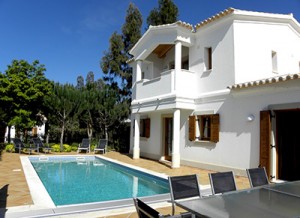Enforcement of Alojamento Local legislation likely to be stepped up
The law (Decreto Lei no. 39/2008) requiring all holiday rental properties to be licensed for alojamento local (“AL”) has now been in force for nearly six years.

This law was a response to pressure from Algarve hoteliers’ association AHETA to simplify the process of registering holiday rental properties, so that the sector could be brought under control, ostensibly to avoid damage to the Algarve’s reputation as a result of poor standards of safety and upkeep, and even fraud. The government was also keen to regulate the sector, so as to be able to record its contribution to GDP, and of course to collect taxes on the rental income.
Failure to comply with AL legislation can result in fines ranging from a minimum of €3,500 up to €25,000, but so far enforcement has been patchy. The body responsible for policing AL is ASAE (Autoridade de Segurança Alimentar e Económica), who conduct inspections, both proactively according to an annual plan, and reactively in response to complaints and “denunciations”. ASAE officers are trained in paramilitary tactics and an inspection can be a seriously unpleasant experience for owners and guests alike.
In 2012, ASAE carried out only 103 inspections with 35 infractions detected, and with the Algarve a particular focus. A similar level of activity was reported for 2013. However, there are four reasons why enforcement and the pace of inspections are likely to increase in 2014 and beyond:
• The first is the public mood. The 2014 budget slashes the wages and increases the working hours of public employees, as well as levying an emergency income tax increase of 3.5% on all employees. For many, this crosses the line from austerity to brutality. National desperation will reach new heights, with further social polarisation and even less sympathy for those perceived as cheating the system by not paying taxes.
• The second is the pressure still being applied by the hotel sector. Owners without AL registration may also be avoiding taxes. In hoteliers’ eyes this amounts to unfair competition.
• The third is the recent introduction of similar legislation in Spain and France . This creates a more level international playing field, in which heavier enforcement by the Portuguese authorities is less likely to drive property owners and guests away to other tourism markets.
• The fourth is that Portugal’s new Economy Minister is already on record as stating that in 2014 there will be a tightening of the legislation in the holiday rental sector. With an already established legal framework, this can only mean a stepping up in enforcement.
Those owners not in compliance with AL may also have omitted to declare their rental activity with the finance department. This can lead to further fines and assessment for unpaid taxes on past rental income.
Following recent changes to the landlord/tenant legislation, it is now possible to circumvent AL registration, but only if a suitable rental contract is executed with every tenant. Income would then be taxable as “passive”, rather than “active”.



